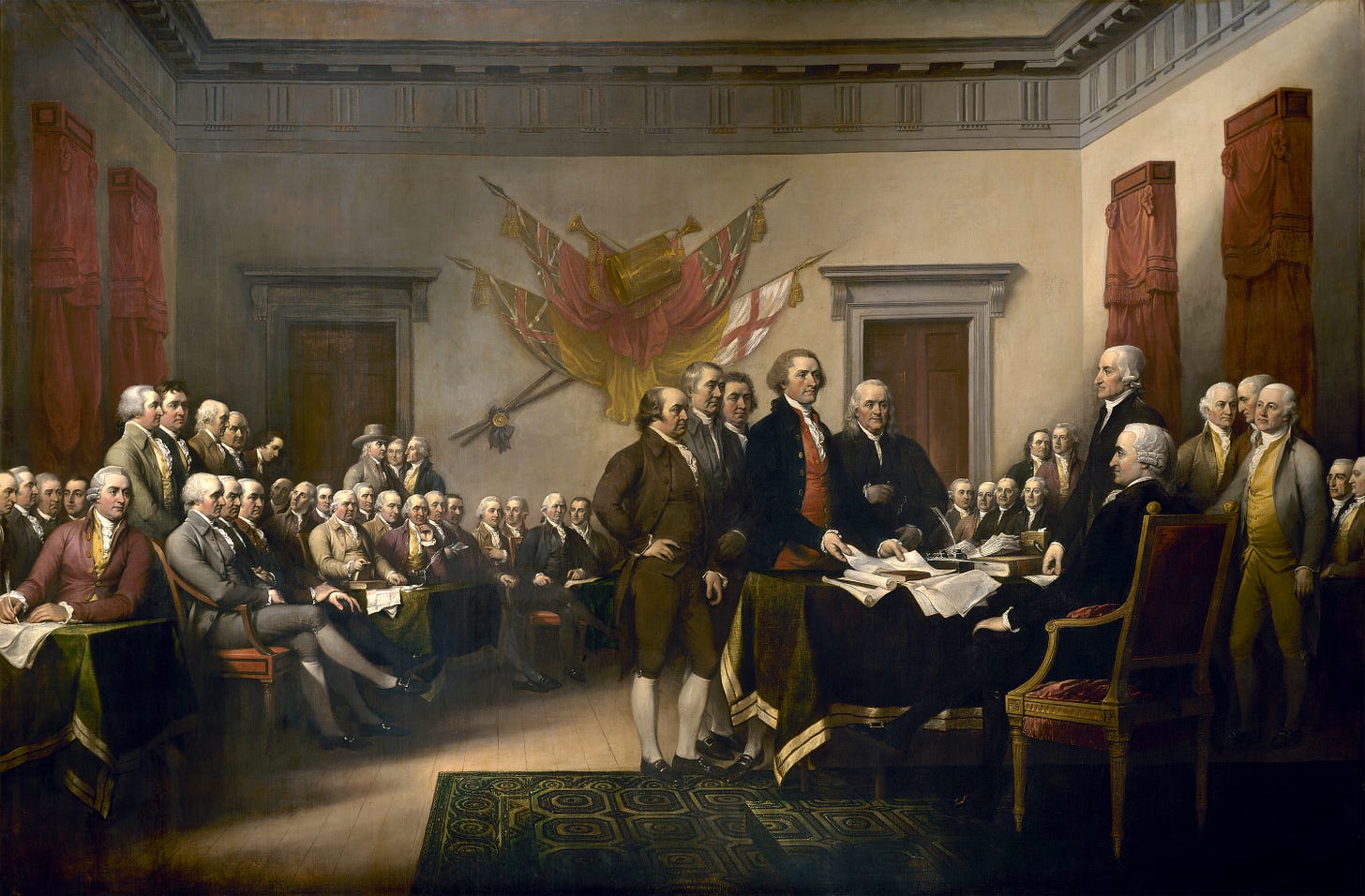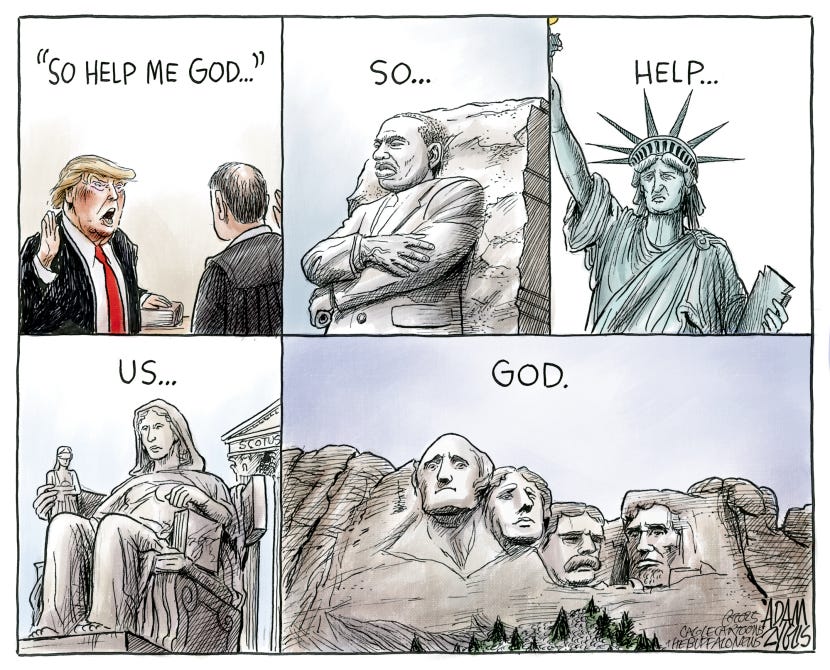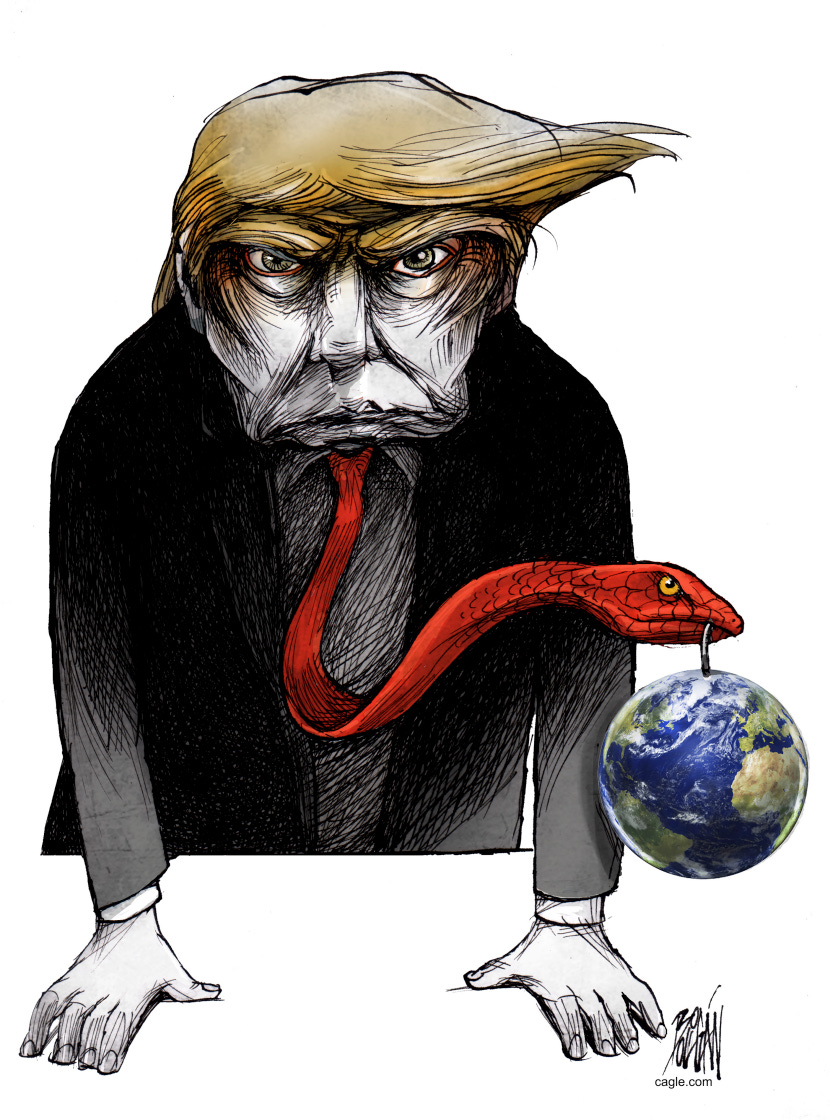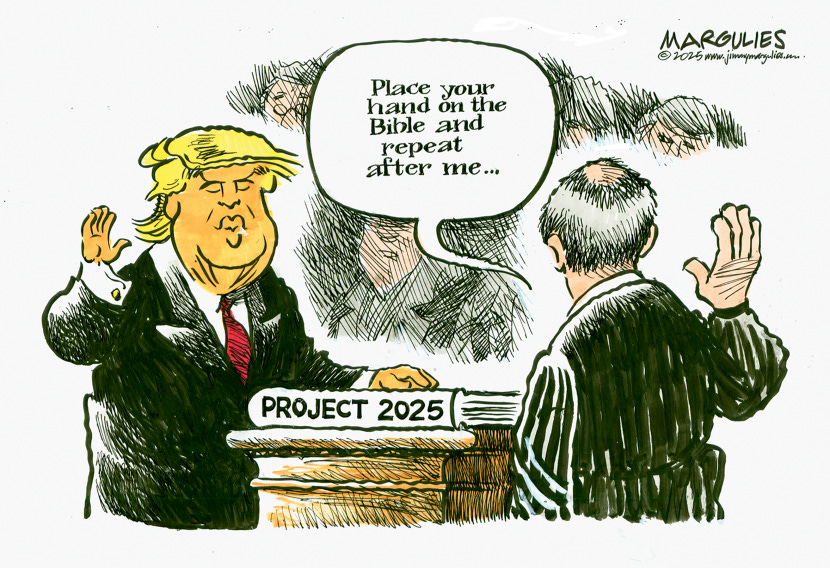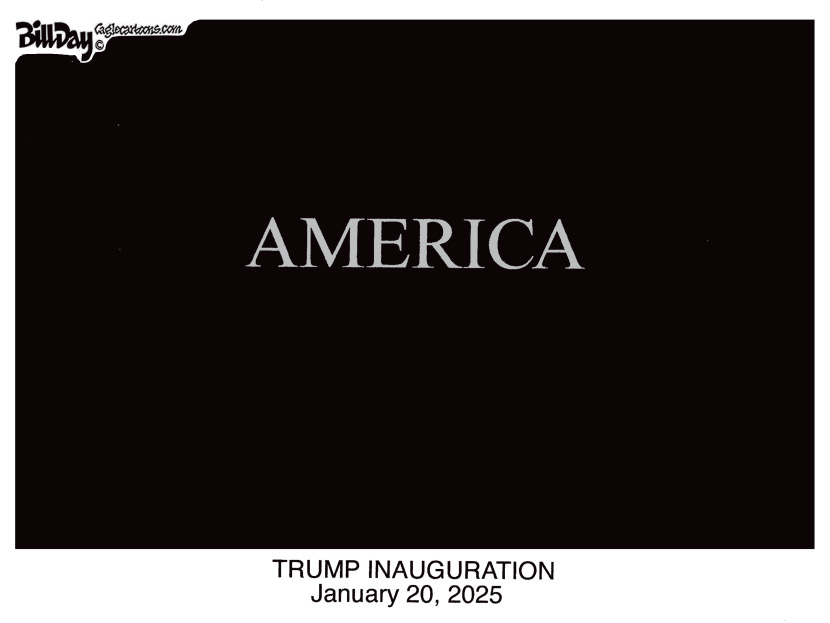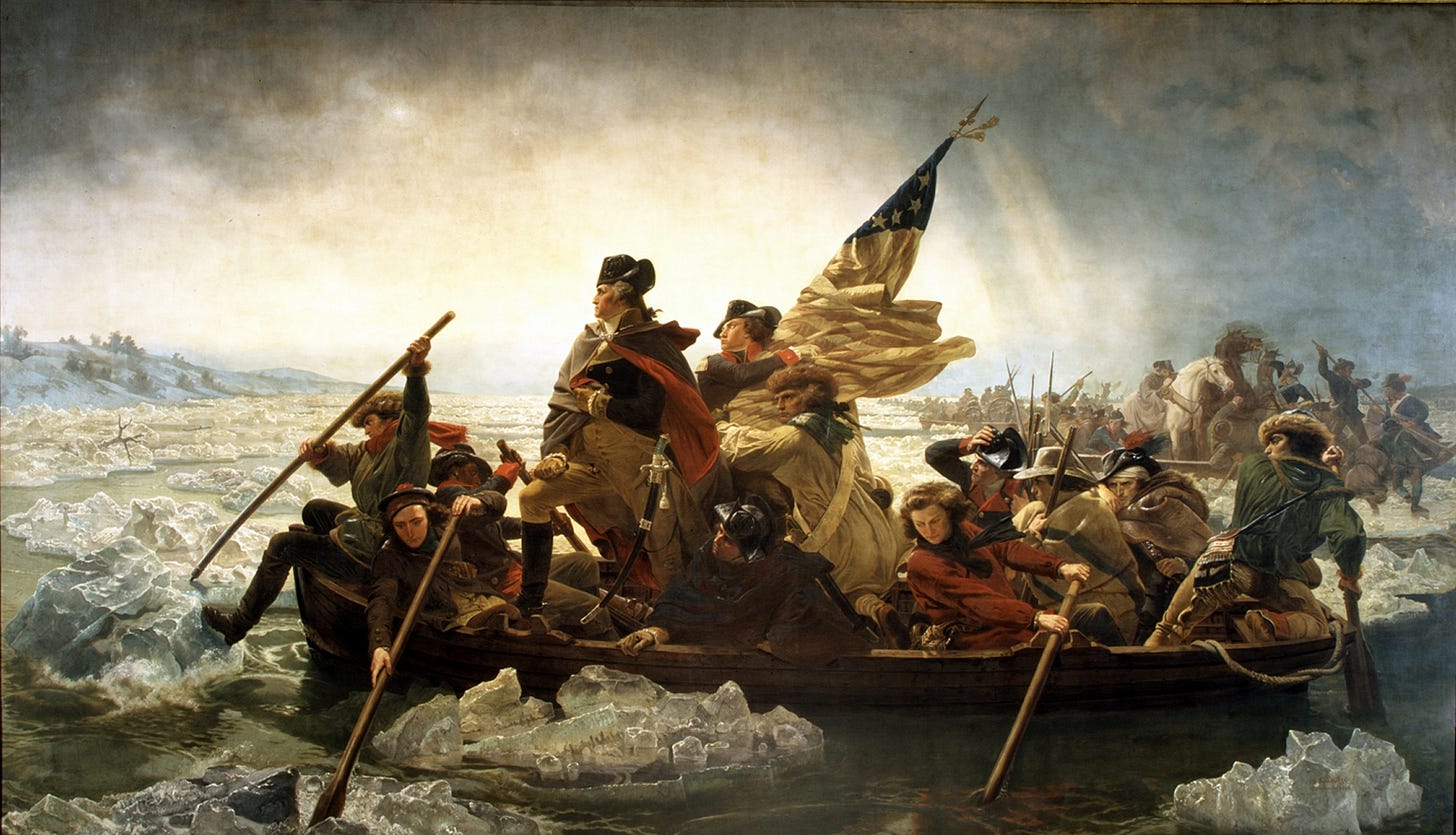The Official Guide to Today’s Inauguration
Everything you need to know about the 2025-2028 presidential term in the United States
At what point shall we expect the approach of danger? By what means shall we fortify against it? Shall we expect some transatlantic military giant, to step the Ocean, and crush us at a blow? Never! All the armies of Europe, Asia and Africa combined, with all the treasure of the earth in their military chest; with a Buonaparte for a commander, could not by force, take a drink from the Ohio, or make a track on the Blue Ridge, in a trial of a thousand years. At what point then is the approach of danger to be expected? I answer, if it ever reach us, it must spring up amongst us. It cannot come from abroad. If destruction be our lot, we must ourselves be its author and finisher. As a nation of freemen, we must live through all time, or die by suicide.
Abraham Lincoln, “The Perpetuation of our Political Institutions”, Address before the Young Men’s Lyceum of Springfield, Illinois, January 27, 1838.
Of those men who have overturned the liberties of republics, the greatest number have begun their career by paying an obsequious court to the people; commencing demagogues, and ending tyrants.
Alexander Hamilton, Federalist no. 1 (“General Introduction”), The Independent Journal, October 27, 1787.
There is danger from all men. The only maxim of a free government ought to be to trust no man living with power to endanger the public liberty.
John Adams, “Notes for an Oration at Braintree” (Spring 1772).
Political parties may now and then answer popular ends, they are likely in the course of time and things, to become potent engines, by which cunning, ambitious, and unprincipled men will be enabled to subvert the power of the people and to usurp for themselves the reins of government, destroying afterwards the very engines which have lifted them to unjust dominion. The alternate domination of one faction over another, sharpened by the spirit of revenge, natural to party dissension, which in different ages and countries has perpetrated the most horrid enormities, is itself a frightful despotism.
George Washington Farewell Address, September 17, 1796.
The accumulation of all powers, legislative, executive, and judiciary, in the same hands, whether of one, a few, or many, and whether hereditary, self-appointed, or elective, may justly be pronounced the very definition of tyranny.
James Madison, Federalist no. 47 (“The Particular Structure of the New Government and the Distribution of Power Among Its Different Parts”), New York Packet, February 1, 1788.
The truth was that all men having power ought to be distrusted to a certain degree.
James Madison, Constitutional Convention Debates, July 11, 1787.
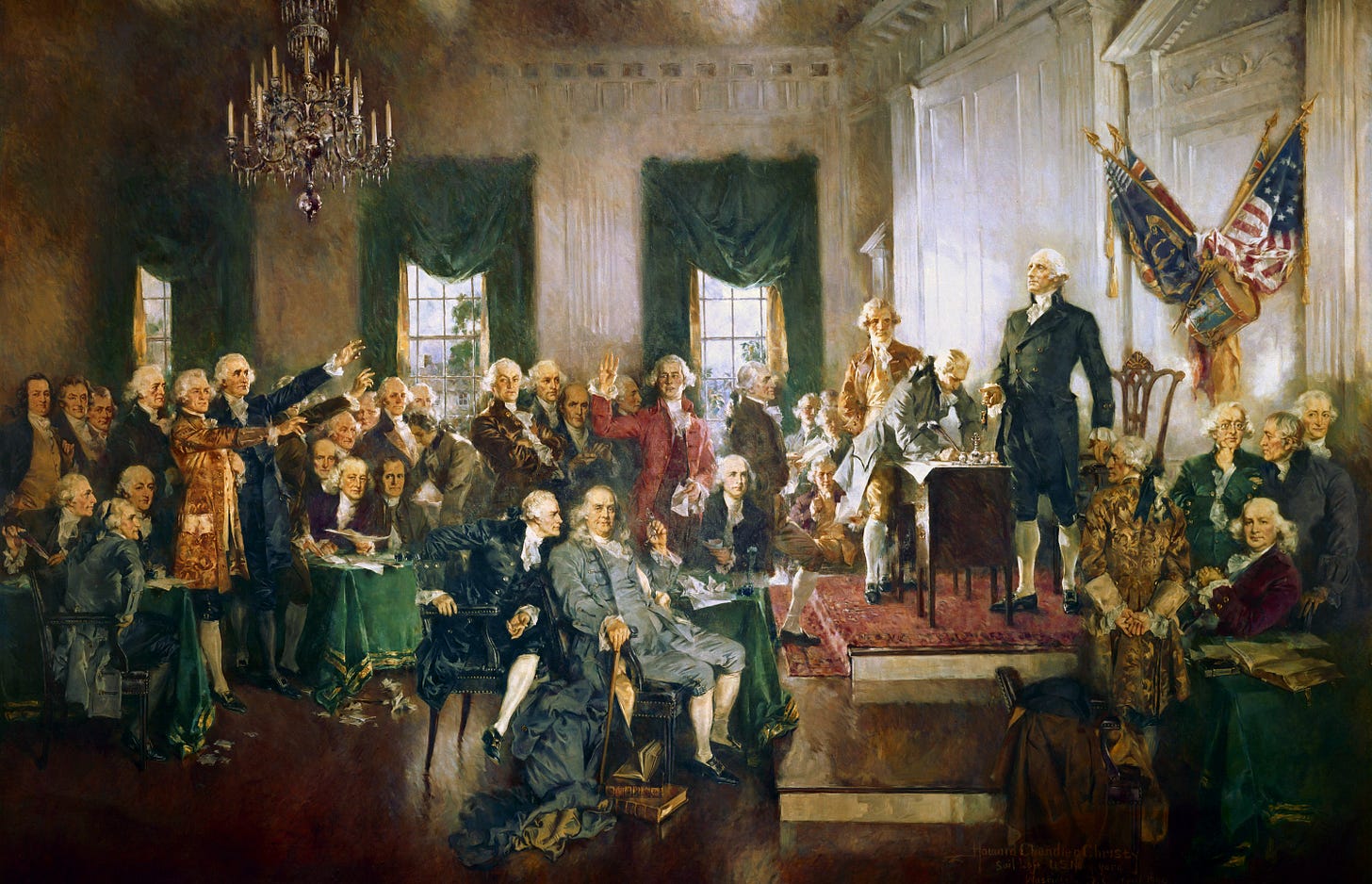
Only a virtuous people are capable of freedom. As nations become more corrupt and vicious, they have more need of masters.
Benjamin Franklin, Letter to Messrs, the Abbes Chalut, and Arnaud, April 17, 1787
It is easy to conceive that great evils to our country and its institutions might flow from a concentration of power in the hands of a few men irresponsible to the people.
Andrew Jackson, Bank Renewal Bill Veto, July 10, 1832.
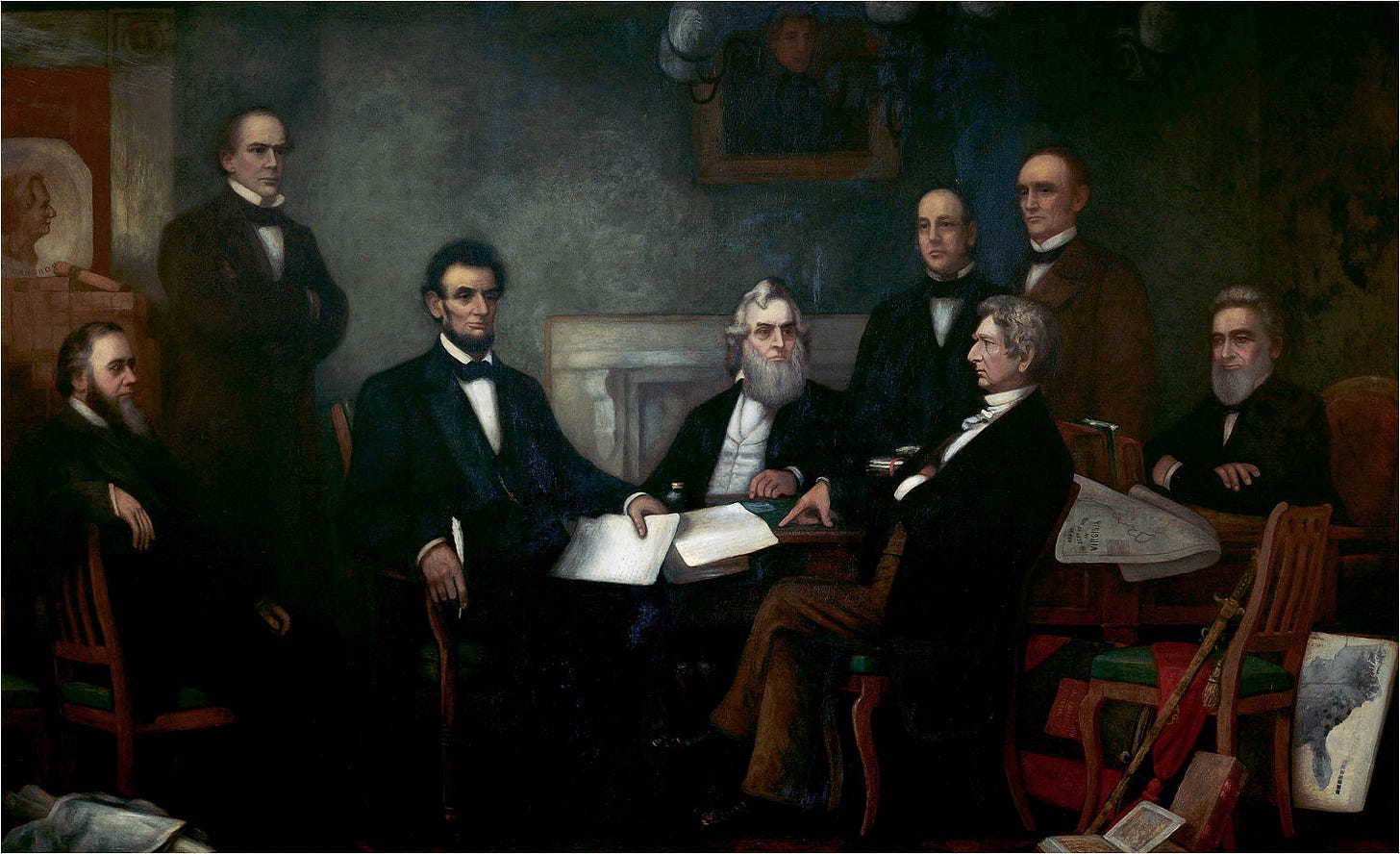
The great danger to our institutions does not appear to me to be in a usurpation by the Government of power not granted by the people, but by the accumulation in one of the departments of that which was assigned to others. Limited as are the powers which have been granted, still enough have been granted to constitute a despotism if concentrated in one of the departments. When the Constitution of the United States first came from the hands of the Convention which formed it, many of the sternest republicans of the day were alarmed at the extent of the power which had been granted to the Federal Government, and more particularly of that portion which had been assigned to the executive branch. There were in it features which appeared not to be in harmony with their ideas of a simple representative democracy or republic, and knowing the tendency of power to increase itself, particularly when exercised by a single individual, predictions were made that at no very remote period the Government would terminate in virtual monarchy.
Inaugural Address of William Henry Harrison, March 4, 1841
The great security against a gradual concentration of the several powers in the same department, consists in giving to those who administer each department the necessary constitutional means and personal motives to resist encroachments of the others. Ambition must be made to counteract ambition. The interest of the man must be connected with the constitutional rights of the place. It may be a reflection on human nature, that such devices should be necessary to control the abuses of government. But what is government itself, but the greatest of all reflections on human nature? If men were angels, no government would be necessary. If angels were to govern men, neither external nor internal controls on government would be necessary. In framing a government which is to be administered by men over men, the great difficulty lies in this: you must first enable the government to control the governed; and in the next place oblige it to control itself.
James Madison, Federalist no. 51 (“The Structure of the Government Must Furnish the Proper Checks and Balances Between the Different Departments”), The New York Independent Journal, February 6, 1788.
I hope we shall take warning from the example and crush in it’s birth the aristocracy of our monied corporations which dare already to challenge our government to a trial of strength, and to bid defiance to the laws of their country.
Thomas Jefferson, Letter to George Logan, November 12, 1816.
We are all bound up together in one great bundle of humanity, and society cannot trample on the weakest and feeblest of its members without receiving the curse in its own soul.
Frances Ellen Watkins Harper, Speech at the Eleventh National Women’s Rights Convention, New York City, May 1, 1866.
The ultimate measure of a man is not where he stands in moments of comfort and convenience, but where he stands at times of challenge and controversy.
Martin Luther King Jr., Strength to Love (1963).
Tyranny, like hell, is not easily conquered; yet we have this consolation with us, that the harder the conflict, the more glorious the triumph.
Thomas Paine, The American Crisis, December 23, 1776.





